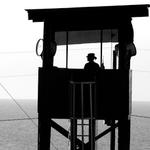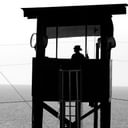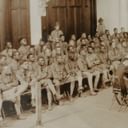
On April 11, 2025, Judge Colonel Matthew McCall ruled that confessions elicited from Ammar al-Baluchi, accused of conspiring in the September 11th terrorism attacks, were the result of torture carried out by the CIA and as a result cannot be used against Mr. al-Baluchi in any legal proceeding. According to Col. McCall, Mr. al-Baluchi involuntarily incriminated himself in 2007 after extensive “psychological conditioning” through torture and abuse during his detention at the CIA’s overseas prisons, known as black sites, between 2003 and 2006. The U.S. government has been seeking a death sentence for Mr. al-Baluchi for more than twenty years.
According to CIA documents cited in the decision, Mr. al-Baluchi was frequently stripped naked and beaten as part of an “enhanced interrogation” program. “Student interrogators” repeatedly slammed his head into a wall, and at one point, Mr. al-Baluchi was shackled at the wrists and ankles and made to stand naked, hooded, and sleepless for 82 consecutive hours. He endured “simulated” waterboarding as water was poured onto a towel covering his face. By the time Mr. al-Baluchi was brought to Guantánamo Bay, he had endured at least 1,100 rounds of “enhanced interrogation,” according to the ruling.
“Just as the C.I.A. psychologists had planned, [Mr. al-Baluchi] learned that he was helpless to resist the torture, and that cooperation meant a lessening of abuse and an increase in rewards.…the goal of the program was to condition him through torture and other inhumane and coercive methods to become compliant during any government questioning …The program worked.”
Federal prosecutors have long argued that by the time that Mr. al-Baluchi allegedly confessed, he no longer feared those in charge of him and willingly participated in three days of questioning. No recordings or transcripts of Mr. al-Baluchi’s interrogations were made, however. Instead, government agents detailed his confession in a 45-page memo. As the New York Times notes, this was Mr. al-Baluchi’s 1,120th interrogation since 2003. Jeffrey Groharing, a federal prosecutor, told the court that Mr. Baluchi later volunteered planners’ motives for the attacks.
Attorneys for Mr. al-Baluchi argued during the January 2025 hearing that even after being transferred to Guantánamo Bay, Mr. al-Baluchi feared if he did not cooperate with questioning, he would be subjected to further torture, or even death. Alka Pradhan, a lawyer for Mr. al-Baluchi, told the court that he was a part of “nonconsensual human experimentation” that agency employees likened to “a Nazi concentration camp.” Ms. Pradhan praised Col. McCall’s ruling, noting that he has now recognized “the brutal torture [Mr. al-Baluchi] suffered at American hands.” She called the ruling “a reminder to the United States that governments that commit crimes must be held accountable.”
Carol Rosenberg, Military Judge Throws Out Sept. 11 Case Confession as Obtained Through Torture, The New York Times, April 11, 2025; Carol Rosenberg, Was Guantánamo Confession Voluntary? A Judge Will Soon Decide., The New York Times, February 4, 2025.



